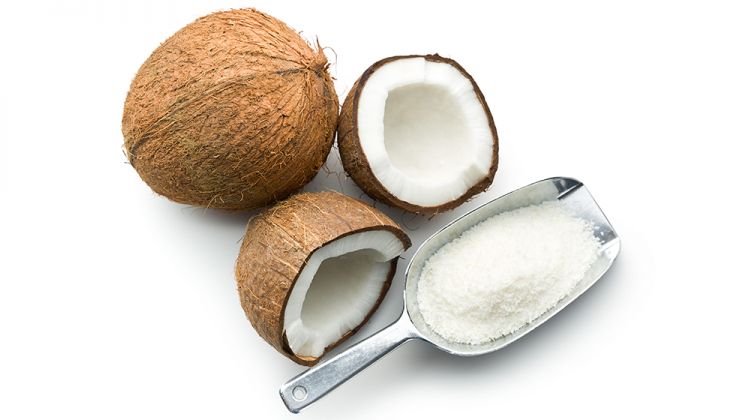Is Coconut Oil Good for You?
A Registered Dietition reveals whether coconut oil – as well as coconut water and other coconut products – are good for you

A decade ago most people’s interaction with coconuts was limited to eating Bountys and trying to overcome unhelpful odds to win one at the fair. Today, it feels like every third product on supermarket shelves is derived from some part of the fruit. There’s coconut milk, oil, water and even coconut sugar already – who knows what the future will hold?
The reason behind this surge in popularity is coconut’s reinvention as a health food, and a canny way to replace all manner of perceived “bad” foods – sugar, flour, vegetable oils.
To find out whether the new wave of coconut foods and drinks are worth considering, Coach spoke to Registered Dietitian Gemma Sampson from dietitianwithoutborders.com.
What is a Coconut?
Despite the name, coconuts are fruits, rather than nuts. Specifically, they are drupes, which are fruits with a fleshy outer layer around a hard shell, which in turn encloses a seed. Typically when you buy a coconut the outermost two layers have been removed already, leaving the hairy wooden egg-shaped treat you know and love.
Coconut oil is usually solid at room temperature, predominantly consisting of saturated fats. While there are studies showing some health benefits to incorporating a bit of coconut fat thanks to the MCT (medium chain triglycerides) component, there isn’t enough evidence to justify adding dollops of the stuff to all of your meals.
RECOMMENDED: Amazon Dash Lets You Order Next-Day Deliveries of Coconut Oil
Get the Coach Newsletter
Sign up for workout ideas, training advice, reviews of the latest gear and more.
Coconut Water
Coconut water is often associated with claims for improved hydration due to its electrolyte content, particularly potassium. In regard to using it as a sports drink, it’s actually a bit low in sodium for athletes. The liquid from inside green coconuts still contains a bit of sugar, and is often mixed with juice to make it palatable, which is something to watch out for.
Coconut flour is higher in protein than other flours, however cooking requires large volumes of liquid and usually a ton of eggs to end up with a palatable product. It’s useful for people who are baking gluten-free goods, being naturally gluten-free.
Coconut sugar is often associated with claims of nutritional superiority to the standard white stuff – but when you should be limiting sugars (no matter what the source), it has a negligible impact on your diet. Nutritionally there is very little difference, and the calorie level is pretty much the same.
There are two types of coconut milk – the tinned variety which is really more the cream (and as such high in fat), and the milk alternative, which is generally lower in fat. Fresh coconut milk used as a milk alternative is low in calcium, so it must be fortified in order to meet calcium needs.
RECOMMENDED: Are Superfoods All That?

Nick Harris-Fry is a journalist who has been covering health and fitness since 2015. Nick is an avid runner, covering 70-110km a week, which gives him ample opportunity to test a wide range of running shoes and running gear. He is also the chief tester for fitness trackers and running watches, treadmills and exercise bikes, and workout headphones.
